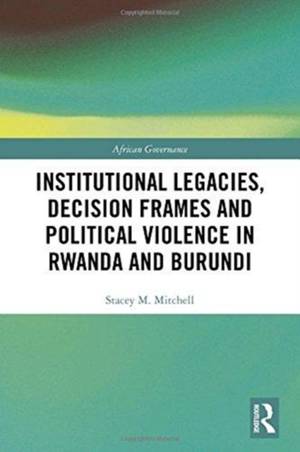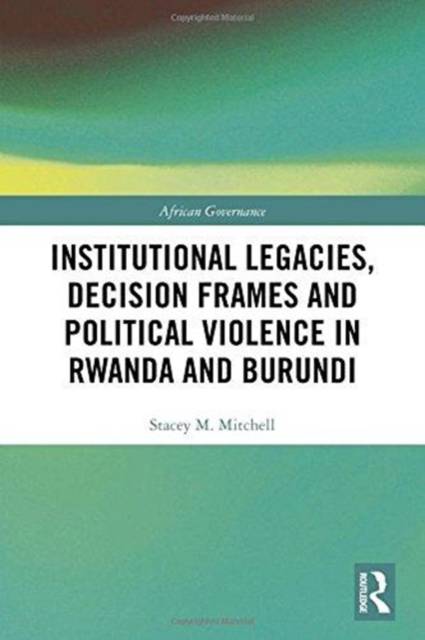
- Retrait gratuit dans votre magasin Club
- 7.000.000 titres dans notre catalogue
- Payer en toute sécurité
- Toujours un magasin près de chez vous
- Retrait gratuit dans votre magasin Club
- 7.000.0000 titres dans notre catalogue
- Payer en toute sécurité
- Toujours un magasin près de chez vous
Institutional Legacies, Decision Frames and Political Violence in Rwanda and Burundi
Stacey MitchellDescription
Rwanda and Burundi are strikingly similar countries that underwent democratization in the early 1990s. In both, resistance to democratic reforms led to coups d'état and presidential assassinations. A conundrum arises in terms of what transpires next. In Rwanda, total genocide was perpetrated by extremist Hutu actors, including government officials, upon the country's Tutsi and politically moderate Hutu populations. In Burundi the coup d'état failed and instead ushered in a lengthy period of civil war. This divergence in outcome is puzzling given the similarity of these two countries, and it is not adequately explained by studies that address collective violence in each.
This book utilizes an integrative approach that facilitates the formation of an explanation that more fully accounts for variation in the type of collective violence that occurred in Rwanda and Burundi. Showing that political actors - during periods of major institutional change - do not all respond to or perceive reform in the exact same manner or in a necessarily rational manner, this book makes an important contribution to the literature on ethnic conflict, collective violence and democratization in Africa.
Spécifications
Parties prenantes
- Auteur(s) :
- Editeur:
Contenu
- Nombre de pages :
- 234
- Langue:
- Anglais
- Collection :
Caractéristiques
- EAN:
- 9781138579439
- Date de parution :
- 14-06-18
- Format:
- Livre relié
- Format numérique:
- Genaaid
- Dimensions :
- 156 mm x 234 mm
- Poids :
- 526 g

Les avis
Nous publions uniquement les avis qui respectent les conditions requises. Consultez nos conditions pour les avis.






